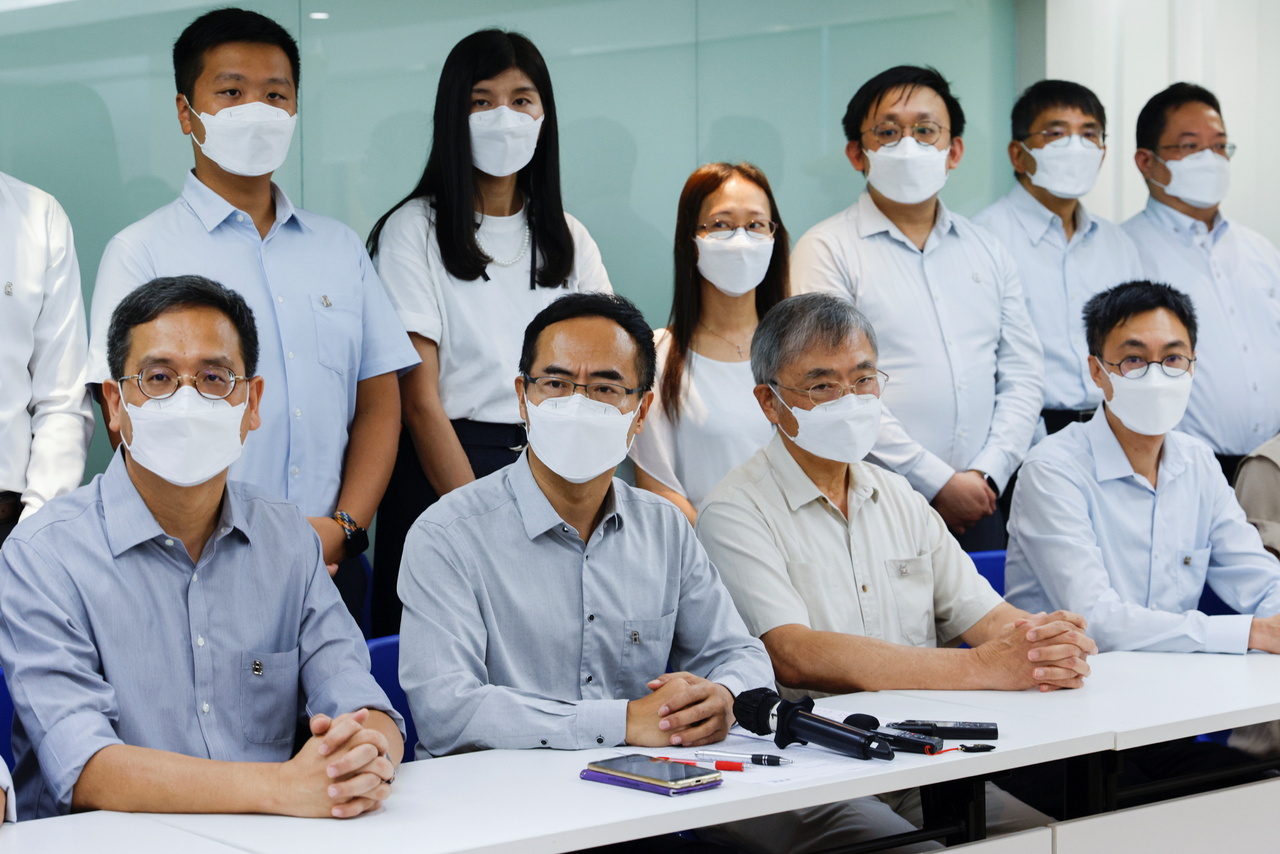HK’s largest teachers’ union is disbanding due to ‘drastic changes’ in the environment
Sign up now: Get ST's newsletters delivered to your inbox

The union was recently criticised by Chinese state media.
PHOTO: REUTERS
Follow topic:
HONG KONG - The city's largest teachers' union, which Chinese state media said was breaching Hong Kong's national security law, is disbanding because of "drastic changes in the social and political environment."
The chairman of the Professional Teachers' Union (PTU), the biggest trade union representing a single profession in the city with 95,000 members, on Tuesday (Aug 10) said the union had come under "huge pressure" although many factors were considered when it considered making this "tough and unwanted" decision."
"It is quite a huge crisis and we cannot cope with (it)," said Mr Fung Wai Wah.
"Even with many options that we've thought about, we can't find one that is feasible, that will solve the crisis or the problematic situation. So, we have to resort to this last option," he added.
The well-funded union will stop recruitment and membership renewals, and will also no longer comment or participate in social events.
The PTU's 200-strong staff will be laid off and the union's asset estates sold.
The PTU has accumulated large reserves from its welfare arm which sold essentials and other goods such as books, stationery and home appliances to members at discounted prices, besides organising profession-related activities.
Union branches in Mong Kok, Causeway Bay and Tsuen Wan will remain open until all the goods such as stationery, books and groceries are sold, while the health clinics that provide discounted check-ups and services in areas like dental, optometry and physiotherapy, will also end their services soon.
The move to dissolve the body comes a week after the union said it would set up a unit to help teachers understand Chinese history, culture and national affairs - a gesture widely viewed as an olive branch to the authorities.
This came after Hong Kong's Education Bureau announced on July 31 that it would cut ties with the PTU and no longer recognise it as a professional education body.
In a statement, the bureau said that "the remarks and deeds of PTU in recent years are invariably inconsistent with what is expected of the education profession, rendering it no different from a political body in essence".
It added that the union not only proactively participated in events organised by the Civil Human Rights Front and Hong Kong Alliance in Support of Patriotic Democratic Movements of China, but has also "urged teachers to launch class boycotts, triggering the infiltration of politics into schools".
Hours before the Bureau's announcement, Chinese media denounced the union as "a poisonous tumor" which it said must be "eradicated."
The mouthpiece of the communist party, People's Daily, said the union had stood against education and professionalism, and had been encouraging anti-China activities while state news agency, Xinhua, charged that PTU had participated in filibusters in the Legislative Council, encouraged class boycotts and supported rioters and teachers who were poisoning students' minds.
The PTU was founded by the prominent pro-democracy activist and politician Szeto Wah in 1973, six years before he died. He set up the union in response to a salary cut for certified teachers.
Its influence grew over the years with the city's second-largest teachers' union - the pro-Beijing Hong Kong Federation of Education Workers - able to muster about 42,000 members or fewer than half of the PTU.
PTU had recently quit the Confederation of Trade Unions viewed as pro-democracy, and had earlier left the Civil Human Rights Front and the Hong Kong Alliance, which used to organise major protests in the city, including some of the biggest during the 2019 unrest and the traditional June 4 vigil for the Tiananmen incident.
In a statement issued shortly after PTU's announcement, the Hong Kong Journalists Association (HKJA) said it was "extremely sad," adding that the union had played an important role in the trade union movement for many years.
HKJA said it believed trade unions continued to play a key role in defending the rights and interests of their members even though the road ahead had become more difficult and dangerous for them.

